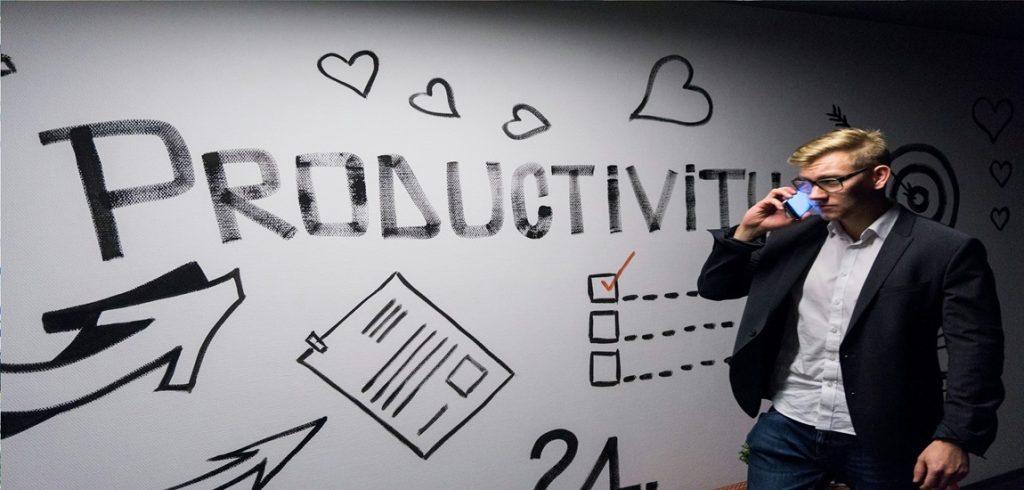
Pic Courtesy - UnSplash
Startup founders frequently juggle multiple tasks and obligations, which can leave them feeling stressed and unproductive. However, by applying several basic yet effective productivity hacks, founders can streamline their workday and increase their output.
Here are eight productivity hacks designed exclusively for company founders:
1. Make A Priority List
One of the most effective strategies to stay productive is to create a priority list. Start your day by determining the most important activities to complete. Focus on completing these chores first before moving on to less important ones. This strategy ensures that you tackle high-impact jobs early in the day, which can enhance your total productivity.
Case Study: Brian Chesky (AirBnB). In the early days of Airbnb, Chesky and his co-founder focused on developing a user-friendly platform to attract hosts and visitors. They ruthlessly removed features that did not directly contribute to this goal, allowing them to launch swiftly and iterate depending on customer feedback.
2. Restrict Social Media Exposure
If not used properly, social media can be a significant time sink. To prevent slipping into the trap of constant scrolling, limit your social media use during work hours. Set specified times for checking your social media accounts, such as during breaks or after work. This might help you avoid distractions and focus on vital activities.
Case Study: Evan Spiegel (Snapchat). Spiegel notably restricted his personal social media use in order to focus on Snapchat’s development. This helped him to think clearly and make smart decisions for the platform’s future.
3. Restrict Phone Notifications
Constant phone notifications can be disruptive and reduce productivity. To stay focused, switch off any non-essential notifications on your phone. You can also activate the “Do Not Disturb” mode during working hours to reduce disruptions. By decreasing the number of notifications you receive, you can focus more on your task.
Case Study: Marc Benioff (Salesforce). To prevent distractions at work, Benioff keeps his phone alerts on mute. This enables him to focus on strategy planning and team leadership at Salesforce.
4. Take Up Most Important Task First
The “eat the frog” strategy recommends doing your most difficult or critical work first thing in the morning. By tackling the most important activity first, you may avoid procrastination and create a positive tone for the remainder of the day. This strategy might help you retain your momentum and productivity throughout the day.
Case Study: Reid Hoffman (LinkedIn). Hoffman begins his most essential task (MIT) first thing every morning. This ensures that he devotes concentrated effort to the most important action that will move the needle for LinkedIn.
5. Break Bigger Tasks Into Smaller Ones
Large jobs can be overwhelming, making it difficult to get started. To make these activities more manageable, divide them into smaller, more attainable subtasks. This not only makes the task seem less onerous, but it also allows you to better track your progress. Celebrate tiny triumphs as you accomplish each subtask to keep you motivated.
Case Study: Susan Wojcicki (YouTube). When YouTube was charged with designing a mobile app, Wojcicki divided the project into smaller, more manageable milestones. This helped the team remain focused and motivated, resulting in a successful app launch.
6. Follow The 80/20 Rule In Work
The Pareto Principle, commonly known as the 80/20 rule, states that around 80% of results are obtained from 20% of work. Apply this idea to your job by determining the tasks or activities that have the most impact on your startup’s success. Concentrate the majority of your time and energy on these high-impact jobs, reducing time spent on less productive activities.
Case Study: Jeff Bezos (Amazon). Bezos stresses the 20% of activities that produce 80% of Amazon’s performance. This technique helps them to focus on high-impact activities while avoiding less critical tasks.
7. Reduce To-Do List
A big to-do list can be stressful and unproductive. Instead than attempting to accomplish everything at once, concentrate on a few critical activities each day. Prioritize things based on priority and urgency, and be realistic about how much you can do in a day. Keeping your to-do list short and focused will help you keep organized and clear about your objectives.
Case Study: Satya Nadella (Microsoft). Nadella is noted for keeping a small to-do list and focusing on the most important activities for himself. This allows him to efficiently delegate while also focusing on Microsoft’s strategic objectives.
8. Delegate
As a business founder, it may be tempting to try to do everything yourself. However, this might lead to fatigue and reduced productivity. Learn to delegate tasks to others, whether through team members or outsourcing specific roles. Delegating helps you to concentrate on high-level strategic duties while also encouraging your team to take on more ownership and responsibility.
Case Study: Elon Musk (Tesla & SpaceX). Musk is a skilled delegater, allowing his team members to handle individual tasks while he concentrates on the broad picture. This frees him up to be a visionary leader who drives innovation at Tesla and SpaceX.
By following these productivity tips and learning from these founders’ success, you can maximize your own time and efforts to generate better results for your firm. Remember, the goal is to figure out what works best for you and tailor these tactics to your personal needs and work style.
This allows company entrepreneurs to improve their efficiency and effectiveness, ultimately leading to better success for their business. Start adopting these tricks into your everyday routine and watch your productivity skyrocket.




More Blogs
Navigating Startup Failures !
Managing cash flow for startups
Startup & Maintaining Morale: Navigating the Rollercoaster of Growth